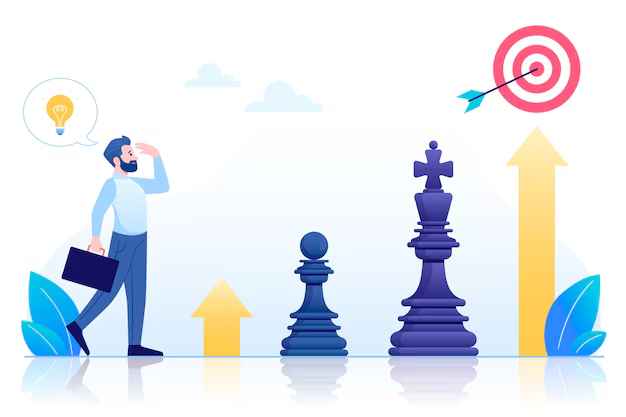We make decisions every day, from small choices like what to eat for breakfast to big ones like changing jobs or moving to a new city. But why is decision making such an important skill? How does it impact our lives? Let’s break it down and also look at some famous people whose smart decisions led to their success.
Why is Decision Making Important?

So, why is decision making such a big deal? Here are a few reasons:
Problem-Solving: Think about it. Whenever we face a problem, the way we decide to tackle it is crucial. Good decisions help us find effective solutions and move forward. It’s not just about solving problems, but also about preventing them from becoming bigger issues.
Achieving Goals: We all have goals, right? Whether it’s getting fit, advancing in our careers, or saving money, decisions are what turn these goals into reality. Each decision acts like a stepping stone, bringing us closer to our desired outcome.
Efficiency: Making good decisions helps us get things done efficiently. It saves time and resources because we avoid unnecessary detours and focus on what works. When we make thoughtful decisions, we streamline our efforts and increase productivity.
Leadership: Leaders are often judged by the quality of their decisions. Good decision making builds trust and respect among team members and stakeholders. It shows confidence and earns respect, helping to create a positive and productive environment.
Adaptability: In today’s fast-changing world, being able to make quick, informed decisions helps us adapt and stay competitive. It allows us to respond effectively to new challenges and opportunities, ensuring we remain relevant and resilient.
How Does Decision Making Impact Our Lives?
The impact of our decisions goes beyond immediate results. Here’s how:
Personal Life: Decisions about health, relationships, and personal growth shape our happiness and well-being. Good choices lead to a fulfilling life, while bad ones can cause stress and missed opportunities. For instance, deciding to maintain a healthy lifestyle can lead to long-term benefits, while poor health choices can have lasting negative effects.
Professional Success: Career advancement often depends on making smart decisions. From choosing the right job to navigating workplace challenges, good decisions are key to professional growth. A well-timed decision to take on a new project or pursue further education can open doors to new opportunities and career advancement.

Organizational Impact: In business, decisions affect everything—from the company’s strategy to its daily operations. The success of a business often hinges on the decisions made by its leaders. Strategic decisions can drive growth and innovation, while poor choices can lead to setbacks and financial loss.
Societal Influence: Leaders’ decisions in politics or community roles have a wide-reaching impact on society. Their choices can shape public policies, social justice, and economic stability, making a significant impact on the community and beyond. For example, decisions related to environmental policies can have long-term effects on climate change and public health.
Innovation and Growth: Many innovations come from bold decision making. Visionaries often take risks and make unconventional choices that lead to significant advancements. These decisions can revolutionize industries, create new markets, and change the way we live and work.
Steps for Making Better Decisions Part 1
Making good decisions involves a few key steps. Let’s break them down:
- Identify the Decision: First, be clear about what decision you need to make. Understanding the problem or opportunity is crucial. Take the time to define the scope and nature of the decision to ensure you are addressing the right issue.
- Gather Information: Next, collect all the relevant information. This includes data, expert opinions, personal experiences, and any other facts that can help. The more information you have, the better position you are to make a better decision. Don’t rush this step; thorough research can make a big difference.
- Identify Alternatives: Then, come up with several options. Looking at different possibilities helps in weighing the pros and cons of each. Brainstorming multiple alternatives can provide a broader perspective and help you discover creative solutions you might not have considered initially.
- Weigh the Evidence: Evaluate the information and alternatives. Think about the potential outcomes, risks, and benefits of each option. This step involves critical thinking and analysis. Consider the short-term and long-term implications, and how each option aligns with your goals and values.
Steps for Making Better Decisions Part 2
- Choose Among Alternatives: Based on your analysis, pick the best choice. This step requires a judgment call, taking into account the evidence and your values. It’s important to be confident and decisive. Trust your instincts and the information you have gathered.
- Take Action: Implement the chosen alternative. Create a plan and take the necessary steps to put your decision into action. This is where execution matters. Ensure you have a clear strategy, allocate resources effectively, and monitor progress to stay on track.
- Review Your Decision: Finally, look back at your decision. Did it solve the problem or seize the opportunity? Reflect on what you learned to improve your future decisions. Continuous evaluation and learning are essential for personal and professional growth. If necessary, make adjustments and don’t be afraid to pivot if things aren’t going as planned.

Examples of Great Decisions by Successful People
Many successful people owe their achievements to smart decisions. Here are a few examples:
Steve Jobs: Steve Jobs decided to return to Apple in 1997. Under his leadership, Apple launched groundbreaking products like the iPod, iPhone, and iPad, transforming the tech industry and turning Apple into a global powerhouse. His focus on design, user experience, and innovation reshaped consumer technology.
Nelson Mandela: After his release from prison, Nelson Mandela chose a path of reconciliation rather than retribution. This decision was key in South Africa’s transition from apartheid to democracy, and it earned him worldwide respect. Mandela’s emphasis on forgiveness and unity helped heal a nation divided by decades of racial injustice.
Elon Musk: Elon Musk made the bold decision to lead companies like Tesla and SpaceX, focusing on sustainable energy and space exploration. His choices have driven significant innovations and inspired many to think differently about the future. Musk’s vision for electric cars and reusable rockets has revolutionized the automotive and aerospace industries.
Conclusion
Decision making is a vital skill that impacts every part of our lives. It helps us solve problems, achieve goals, and lead effectively. By following a structured decision-making process and learning from the examples of successful individuals, we can make better choices that lead to positive outcomes.
Read more:
All about Decision Making